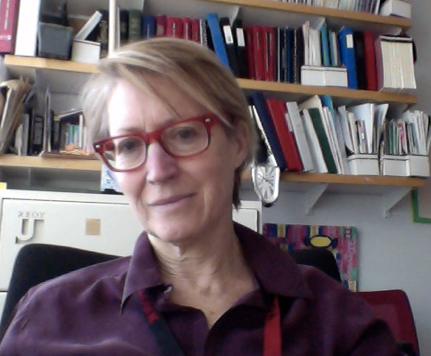
Professor Heather Lotherington recently presented at The Magic of Innovation: Language and Language Teaching in a Changing Environment international conference which was held virtually this past April. Now in its 5th year, the annual conference is organized by the English Language Department of the School of International Relations of the Moscow State Institute of Foreign Relations (MGIMO University).
Lotherington delivered a keynote talk entitled '@digitalcommunication: Language, digital mediation, and academic writing' which surveyed changes in the shape and use of (English) language corresponding to developments in digital mediation. Lotherington stated that in academic language instruction, there is a tendency to rely on dated paradigms of language to teach a skill set established in pre-digital print culture: speaking-listening-reading-writing towards essay writing, note-taking and successful standardized test taking. However, in 2021, when most daily communication is mediated on smartphones, teaching writing as a linear alphabetic process perpetuates conservative academic text production that is a poor fit for current and future social and economic needs.
Heather Lotherington keynote presentation @digitalcommunication: Language, digital mediation, and academic writing
(begins at approximately the 48:00 into the video)
In addition to the keynote, Lotherington also presented a masterclass workshop, Production pedagogies: Towards learner agency in digital language learning where she examined how language instructors at all levels of teaching have embraced digital tools and innovative multimedia assignments using the affordances of digital mediation. Lotherington stated that there is a still a wide gulf between educational institutions inviting innovation, and those banning smartphones in the classroom. The workshop began by canvassing participating teachers on their current applications of digital tools and texts and predominant digital changes in the languages they speak and teach. She presented models for project-based language learning, using easily available tools on a smartphone towards language learning that gives learners opportunity to provide meaningful context to their learning, and affords them multimodal supports for vocabulary acquisition, and agency in learning.
“The experience of so actively participating in a conference based at a prestigious university in Moscow, Russia was fascinating, permitting me a peek behind the academic remnants of the iron curtain," said Lotherington. "I found participants incredibly intellectually astute and well-read but more focused on Soviet-era literary achievements than I had anticipated. Their questions were incisive and penetrating, yet participants were game to play with new media on their individual smartphones in my workshop, producing and sharing wonderful small stories created on the fly on our Zoom platform. The conference was a most enriching experience.”
Lotherington is Professor of Multilingual Education in the Faculty of Education at York University, and a Fellow of McLaughlin College, York University, and Massey College, University of Toronto. She has been involved in language teaching and learning for over 40 years, having taught English for Academic purposes in Canada, Papua New Guinea, and Singapore; lectured in TESL and Applied linguistics at the University of the South Pacific in Suva, Fiji, and Linguistics at Monash University in Melbourne, Australia where she was Executive Director of the Language and Society Research Centre. In 1999 she joined the Faculty of Education at York University where she has just stepped down as Associate Dean, Research. Her research focuses on multimodal digital literacies and innovative plurilingual pedagogies. She currently leads a research team exploring production pedagogies for mobile digital language learning. She has published and presented widely on multimodal, plurilingual teaching and learning, and language in digital environments.
